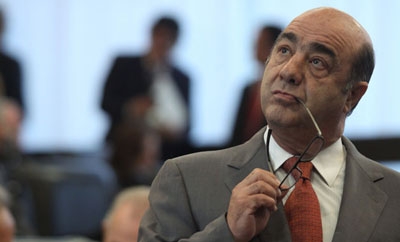Speaking on his tour of Washington DC, Mexico’s attorney general discussed various security and justice reforms being implemented in the country, but continued his government’s propensity to be vague on details of concrete measures and results.
In a September 10 conference sponsored by the Mexico Institute (see video below) at the Wilson Center, Attorney General Jesus Murillo Karam highlighted the security achievements of the current administration, including the capture of over 60 of the country’s 120 most wanted criminals and a downward trend in violence levels. Murillo also emphasized the government claims of having changed the previous strategy of targeting criminal kingpins, but did not expand on the new strategy in its place.
Among justice system reforms Murillo mentioned, was the transition to a strictly accusatorial criminal justice system of the sort used in many countries in the region, which assumes the innocence of the accused, allows for a more transparent process and guarantees the accused the right to a licensed lawyer.
Another major reform Murillo said was underway was the creation of a national criminal code to replace the existing 33 codes.
InSight Crime Analysis
While it has had some successes, the administration of President Enrique Peña Nieto has been criticized for largely failing to clarify its security strategy. Despite the achievements highlighted by the attorney general, his declarations were broad and vague.
Mexico’s efforts to improve its weak and poorly trusted judicial system are not new. However, while the transition to an accusatorial system has been ongoing since 2008, it still has not led to clear advances in the efficent functioning of the justice system.
The judicial system has been the subject of strong criticism due to high levels of impunity. According to the country’s national statistics Institute (INEGI), sentences were issued in just 1.8 percent of homicide cases registered in 2012. A report by the Attorney General’s Office says that between 2006 and 2011, only 31 percent of people arrested on drug charges were sentenced.

